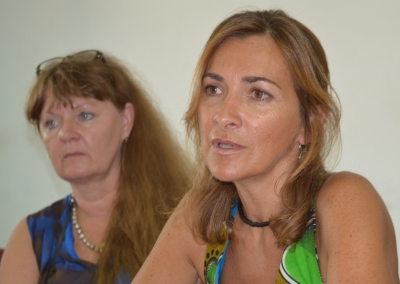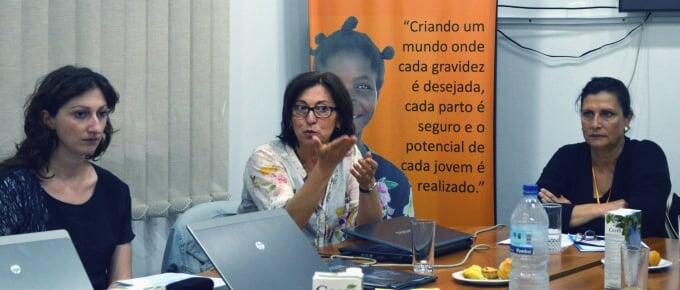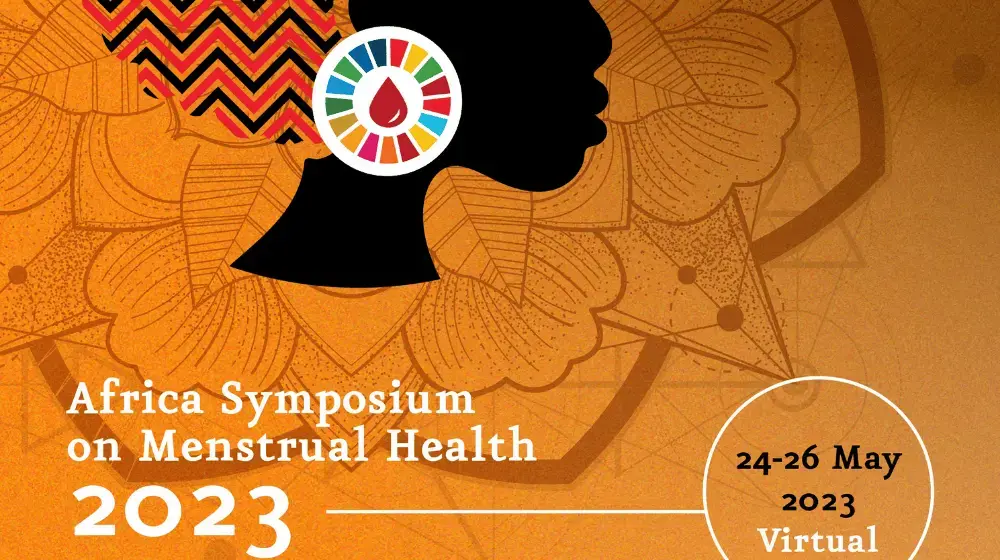MAPUTO, Mozambique — A delegation of six members of the European Parliamentarians Forum (EPF) visited Mozambique in August to learn about UNFPA-supported programmes in the areas of Sexual and Reproductive Health and Rights and Family Planning.
The parliamentarians represented Belgium, Finland, Portugal, Spain and Sweden. Their visit was funded by Countdown 2015 Europe and UNFPA, and was hosted by AMODEFA (Mozambican Association for Family Development).
The delegates visited hospitals in rural areas of Gaza and Maputo, met patients and attended sexual education classes and youth-friendly corners in schools. They had formal meetings with Members of Parliament, relevant ministries, international organizations and local civil society organizations.
They heard that Mozambique has a lack of human resources in healthcare and needs to scale up sexual and reproductive health services. The HIV prevalence is high, while the contraceptive prevalence rate is only 11.3 per cent. Foreign donors are the only suppliers of commodities: 72 per cent of commodities are delivered by UNFPA and the rest by USAID.
On a positive note, they found that people were articulate in matters related to HIV prevention, which could be taken as an opportunity to support efforts aimed at reducing the prevalence rate.
The delegation’s report highlighted the importance of investing in human resources and empowering people through sexual and reproductive health education and communication initiatives, with a particular focus on family planning. Investing in human resources in health care was more important than infrastructure projects.

Mozambique is not on target to achieve MDG 5. The country’s maternal mortality rate is still unacceptably high, at 408 deaths per 100,000 life births, and only 55 per cent of deliveries are conducted in hospitals.
The parliamentarians agreed to use the knowledge they gained during their visit to ensure strong governmental positions on SRHR during various international meetings, in advance of the post-MDG negotiations.
“Despite the fact that we are facing an economic crisis, we are willing to collaborate to find solutions for safe deliveries,” said Carmen Navarro Cruz, Parliamentarian for Spain. Maria António Almeida, from Portugal, stressed: “There is a need to allocate more resources for family planning and sexual and reproductive health.”
What was particularly concerning was the fact that 21 per cent of girls in Mozambique are married by the age of 15 and 57 per cent by age 18.
“There is a need to reinforce male involvement and responsibility in reproductive health to strengthen the prevention of teen pregnancies, early marriage, sexually transmitted infections and and violence against women,” said Almeida. Contrary to the current scenario, “if a girl falls pregnant she should be allowed to continue her education and attend day classes with her peers.”
The delegation said the visit was useful as it provided first-hand information for their work within foreign affairs or development committees, particularly when advocating for the promotion of and funding for Sexual and Reproductive Health and Rights.
~ Amâncio Miguel, Mozambique





